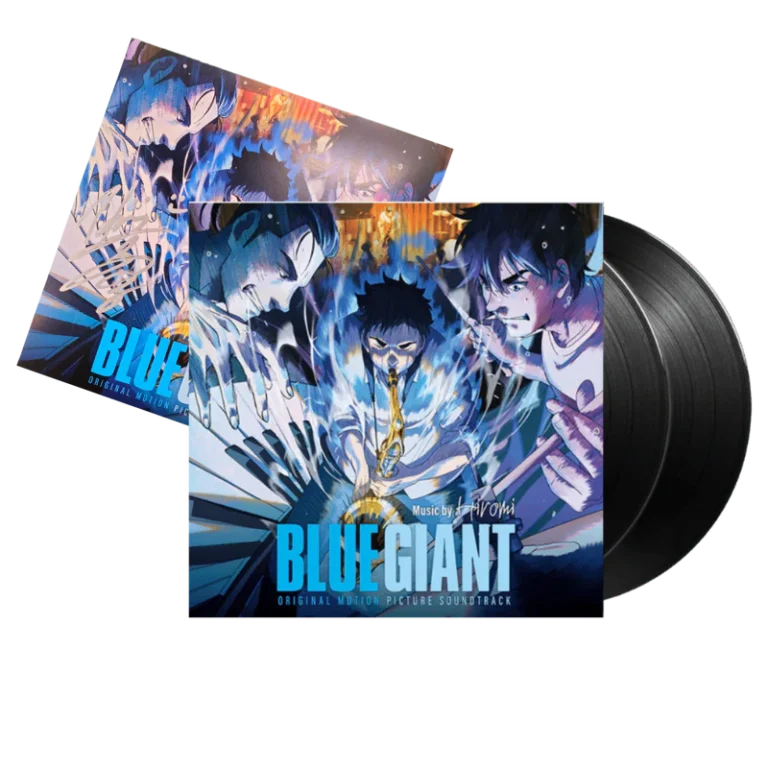“My first piano teacher would write, ‘Spend a life full of dreams’ on each new music book,” she has said. And while the ‘greatest’ anything might be the stuff of fiction, with a prolific career including 13 studio albums, seven live albums, numerous A-list collaborations, a Grammy award and a global reputation as a maverick genius, the girl from Hamamatsu city in Shizuoka prefecture is certainly up there with the best.
“I love the instrument and want people to know its potential,” Hiromi says of the piano, whose keys she wields with a remarkable combination of technical brilliance, genre-leaping curiosity and regardless of format, an ability to tell a story without words. “The piano is an orchestra in itself.”
It makes sense, then, that film director Yuzuru Tachikawa would task Hiromi with composing the soundtrack to “Blue Giant”, his adaptation of the multi-million-selling manga comic series about three 18-year-old musicians and their rollercoaster ride toward becoming jazz legends.
Hiromi’s 29-track score has since been hailed as a masterwork, a compositional feat as fiery and dynamic as it is mesmeric and compelling. One of the biggest jazz albums worldwide of 2023 (the film is yet to receive a global release), it has recently been issued, by popular demand, in a special blue double vinyl edition.
The “Blue Giant” soundtrack is a project teeming with life, strafed with variety. Hiromi’s call for collaborators gathered over 30 top-class classical and jazz musicians – among them, her Piano Quintet and a string section conducted by Grammy-nominated composer Miho Hazama. Their recordings accompany the action; performances by a trio called Jass are delivered by real-life Japanese saxophonist Tomoaki Baba, whose muscular lines mirror the onscreen playing of the main character, Dai; well-known Japanese drummer Shun Ishiwaka is the beats behind the film’s fictional sticksman, Tamada.
The pianist playing the sparkling, complex music of the movie’s wunderkind keys player Sawabe is, of course, Hiromi.

Hiromi was herself a wunderkind: having begun piano lessons aged four, she was filling notebooks with compositional ideas by the age of six. At 12 she was travelling to perform in Taiwan (“I realised the piano was like a plane, it could take me anywhere”) and two years later she was guesting with the Czech Philharmonic. She was 17 when her musical prowess so impressed Chick Corea that he invited her to sit in with him at his show in Tokyo. A decade later they released a live album, “Duet”.
Ahmad Jamal was her mentor during her time at Berklee College of Music in Boston. After which she carved out a singular career path, as befits an artist influenced as much by Frank Zappa as George Gershwin, by The Who as Béla Bartók. She released solo, duo, trio and quartet albums, winning that Grammy in 2011 as part of the Stanley Clarke Band, always adding colours to her sonic palette (not for nothing is her 2023 album called “Sonicwonderland”). Live, she appears in eye-catching outfits, her hair teased into cloud above her head. She plays bebop, power chords; she stands up, claps along, has a ball.
A hugely sensitive player, she can also do intense and elegiac, befitting “Blue Giant”‘s view – as spoken by Dai – that jazz can be deeply emotional and expressive, especially when created in the moment. So we have the quiet early morning flute solo in the track “Day by Day” and the spare jazz-blues of the eponymous closer. Then there is the sweeping magnificence of the concert scenes, which move the story along in ways mutually decided by Hiromi and the film’s director – or by Hiromi’s executive decisions.
“Hiromi is such a professional that she would take in some of our feedback, but sometimes she wouldn’t,” Tachikawa has said. “She would say, ‘What you’re asking goes beyond the framework of the story we’re telling’. Whatever she did, it was always with the intention of making the best film and the best story.”
And indeed, the greatest music.
Read on… Triumphal Tardis: Jason Moran’s Ten
Jane Cornwell is an Australian-born, London-based writer on arts, travel and music for publications and platforms in the UK and Australia, including Songlines and Jazzwise. She’s the former jazz critic of the London Evening Standard.
Header Image: Hiromi. Photo: Mitsuru Nishimura.



